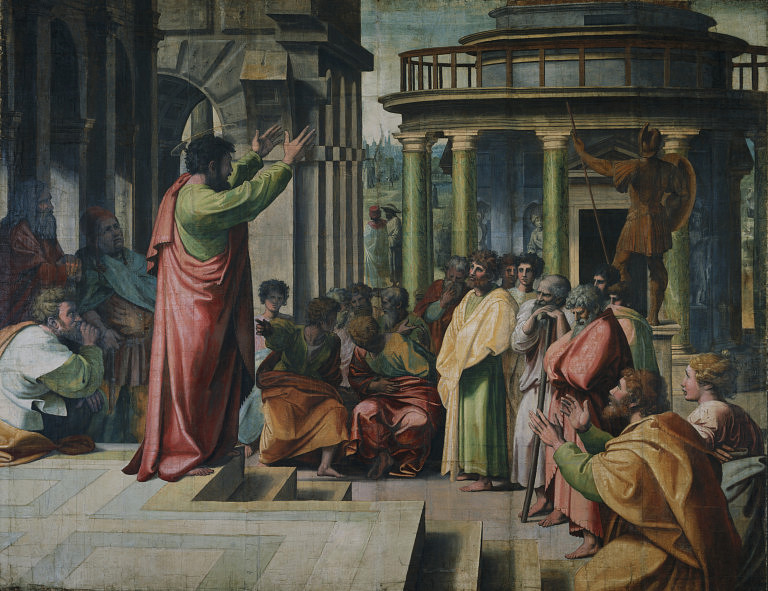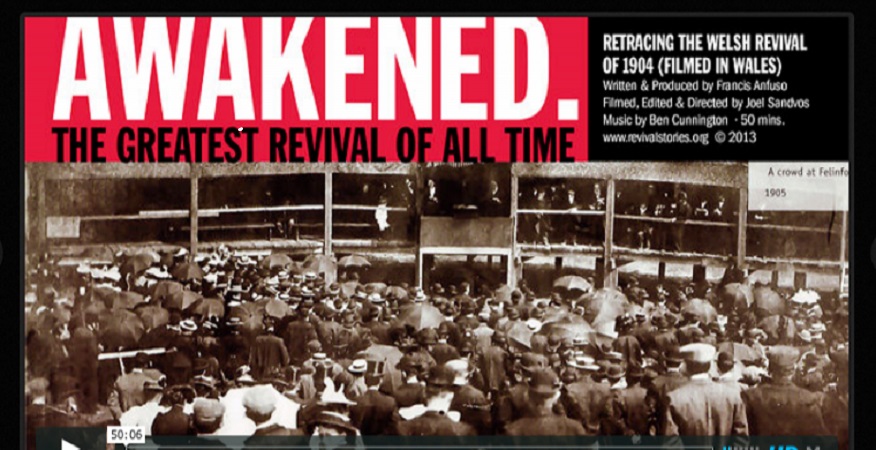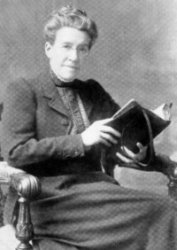 As we’ve seen in previous posts, any person with a controlling spirit tries to control and manipulate everyone under their influence. They control their lives, decisions and will do everything possible to have influence and power. They want to control their lives, and the lives of those around them, so that they would get things done their own way.
As we’ve seen in previous posts, any person with a controlling spirit tries to control and manipulate everyone under their influence. They control their lives, decisions and will do everything possible to have influence and power. They want to control their lives, and the lives of those around them, so that they would get things done their own way.
Many of us are under the power and influence of someone with a controlling spirit. This can be a parent, spouse, boss at work or anyone in a position of leadership. The same controlling spirit may manifest in very different ways.
For instance a controlling, manipulative mother will often be horrified when her daughter grows up to be exactly like her or even worse. Little does she know that she released that very curse into her child’s life! This mother will not be content with the exercise of her legitimate authority, therefore she will exploit all her children spiritually, emotionally, and financially.
Let’s look at one example: A boy is brought into this world by his mother. She feeds him, nurtures him, protects him, sings baby songs to him, and he really becomes mama’s boy. The shift comes when a boy begins to seek out his father’s affection, which is how masculinity is bestowed.
This sometimes is very hard in a mother’s life when the father now replaces her as the main influence in the boy’s life. If a mother insists on controlling the boy, instead of letting go, things can get very nasty later in life—most especially in marriage. The boy develops an emotional bond with his mother that is hard to break. His loyalties are now divided.
When a man marries a woman, he cannot do anything without the advice and consent of his mother. The mother tells him everything to do and not what to do. She even controls the raising of their children. The mother of the man is not physically in the couple’s home with her son, but controls him.
In this case the man (husband) is under the influence and authority of his mother. It’s as if the man is married to his mother. She does everything in her power to destroy the marriage and if possible to cause a divorce so that she can regain the control of her son to herself. This results in a controlling spirit which leads to full blown witchcraft!
When the mother insists on clinging to his son and direct his life and decisions, the boy will try to tear himself away from her sometimes violently. The mother of course will feel rejected and will try to do everything to gain illegitimate control of her son.
This is the story of so many adults who resent their mothers but cannot say why. Remember since the fall of our first parents Adam and Eve, the woman’s God given natural respect for man was damaged, and now she wanted to control any person in her life, her surroundings and relationships. You never hear of a father trying to control his son or daughter before or after they are married. It’s always the mother.
The Curse of Jezebel Witchcraft Spirit in a Family
Here is a true story of Peter who relates his experience resulting from a curse of witchcraft in his family. Peter’s father was a successful construction engineer and managing director of a construction company. However, his success was blighted by polygamy and witchcraft.
He had around 17 children from 10 different women. And as you can imagine, polygamy affects children in every area of their lives. The more women he had; the more the family suffered. There was fear of witchcraft from the different women who of course wanted to be in total control of the man.
All help in witchdoctors, who were brought to Peter’s home and those they visited, were sought in vain as tragedy after tragedy befell the family. His whole extended family had dabbled in witchcraft in which certain rituals were performed and all other strange things not worth mentioning. Finally, it was time for payback from the devil.
Peter’s step-elder brother died along with his two kids. Subsequently, all Peter’s uncles died one by one. Later as expected, the dad died and then the remaining uncle and the aunt. It’s as if they had made a covenant with a spirit of death! Peter says, “My family was very messed up, and if at all it wasn’t the grace and mercy of the Lord Jesus Christ, I was headed for same destiny.”
Nevertheless, God plan over Peter’s life had to prevail. When Peter was around 18 years old, he happened to attend a gospel crusade in a nearby village. The message was about the power of the cross of Jesus Christ over sin. Peter put his faith in the Person of the Lord Jesus Christ.
The problem is, although Peter had trusted in the saving grace of Christ, he was so ignorant of the word of God and he therefore needed a follow-up as young covert in order to be discipled. Peter backslid for almost ten years and as you can imagine, he made very bad choices that he regrets to this day.
Worse still, Peter’s mother unknowingly destroyed his family by controlling and manipulating his dad using witchcraft. Peter’s dad was now a victim of witchcraft and he was being slowly poisoned by the mother of his kids so that she could totally have control of his life and everything he owned including his children.
Peter told me his dad lost the good use of his faculties and worse still he was medically diabetic, always looking weak, sickly and almost paralyzed. It was as if something was sucking life out of him. So when he was deteriorating to the point of mental imbalance, most people thought it was diabetes. Yes, his sickness played a part, but it was mainly witchcraft that destroyed him.
I asked Peter how he found out that his mother was practicing witchcraft and he told me, it all started when Peter’s mum was physically abused by the dad.
Peter believes his mum unconsciously lost her utmost respect to his dad. Desperate to be in control and never to be abused again, she resorted to witchcraft to control the man and all his remaining financial assets.
Remember two of the strongest desires or cravings of human nature are the desire for knowledge and the desire for power. If someone is not fully satisfied with what he/she obtains, they will turn inevitably to supernatural sources. It is at this point that they become entrapped in witchcraft.
The problem is, when you give the devil an inch, he takes a mile. Peter’s mum didn’t stop. As the years passed, she had to maintain this practice, ignorant of the fact that she was slowly and but surely killing the father of her kids because of selfishness.
According to my friend, his mum to this present day practices real witchcraft on her children by using the same witchcraft tactics he used on their father to the point that she has almost directed the course of their lives.
The family that was once vibrant and loving is now a mess…land sold and the money used in reckless living, self-indulgence, and giving to witch doctors in order to gain more control and power.
Unfortunately, Peter’s sisters are not aware of the extent of this control. When Peter tried to awaken his sisters about this issue; they almost seemed to be in a state of denial and defended the mother at all costs to the extent that Peter was now the enemy who wanted to kill his mother. Ignorance does not absolve us from the guilt of our sins, but it may dispose God to show us mercy if we repent and turn to Him.
Peter told me that all through the years of his marriage, he has labored against this curse of witchcraft. He and his wife have had continuous financial problems. Although Peter knew clearly the call of service to which God had called him, he could not move into it.
Everything he did seemed to end with a small measure of fruitfulness. Peter has all the professional qualifications and yet seemed to be facing frustration and hopelessness.
This struggle had gone on for years….then one day after spending sometime in prayer and fasting, Peter perceived and discerned through a series of dreams and circumstances that there was a curse in the family.
This curse revolved around a spirit of witchcraft that has operated through his mother. This spirit had operated in several generations of Peter’s family especially in the area of finance.
A Financial Curse
Remember money is an important element in God’s plan for our lives. It’s important to know how you spend, or whom you give your money. You need to ask yourself whether you spend it wisely and in accordance with God’s will, plan, and purposes.
In Peter’s case, he and his wife were sending money to Peter’s mother who in turn probably used this money unknowingly in paying witch doctors and using it in other self-indulgent lifestyles. This, by all means, caused a financial curse in Peter’s life.
When we offer money to someone, we are offering a major part of ourselves to that person. It is similar to giving an offering to God. When you invest your money, you are investing in a major part of yourself for good or evil. You are giving that person your time, strength, talents and probably your inheritance.
Now the question is how could be free from this curse? First Peter had to forgive his mother and realize that his mother was not his enemy. He also had to acknowledge that the spirit of witchcraft had been influencing both of them.
Secondly, Peter had to stop sending money to her mother in Africa because as we’ve seen, money is a part of us. When we give money to someone, we give a part of ourselves. Peter wasn’t aware that the money sent to her mother was channeled to witchdoctors. His mother herself was also a prisoner and in bondage not knowing that her selfish actions are causing all of this.
Keep in mind that a big percentage of African “Christians” still believe in witchcraft and spells. They believe in sacrificing goats and chickens when working on different projects especially construction, because if they don’t; “something terrible” might happen!
They go to church on Sunday and visit a witch doctor on Monday. These are Christians as long as food, clothes, and money keep coming in especially from relatives abroad. So Peter and his sisters didn’t know that their mother still practiced witchcraft rituals to control them.
Lastly, Peter had to face the fact that a curse was at work in the family. He released himself from the curse by repenting and asking forgiveness for any sins that exposed him to a curse. He asked the Lord to release him from the consequences of his parents’ and ancestors’ sins.
He also confessed daily that “Christ has redeemed me from the curse…. (Galatians 3:13-14)….Through the sacrificial offering of Christ on the cross I have been purchased out from under the curse and have entered into the blessings of Abraham, whom God blessed in all things.”
Peter didn’t see the changes in his life immediately, but at least he’s now sensing a degree of hope and direction in his life. He is beginning to see productivity and fruitfulness as a result of his labors.
Although the mother might be ignorant of her selfish actions, her ignorance doesn’t set her free from the consequences or guilt of her sins and neither does it free any of us from the guilt of our sins. But the good news is that God may show us mercy if we repent and turn to Him.
The Lord of Heaven and Earth does not Dwell in Handmade Shrines
In his message to the Athenians, the Apostle Paul knew they had been an earthquake in Athens many years before which destroyed the city. Being polytheistic, the Athenians assumed that they had upset one of their gods, and were anxious to know which one. So they decided to let some sheep loose in the main street. Whichever idol the sheep lay down nearest to would indicate which god the Athenians had upset.
However, the sheep refused to follow the plan and ended up lying down in the middle of a field. So the council met and concluded that if they still did not know which god they had upset there might be a god they had forgotten, who was upset at the absence of an altar for him. So they erected an extra altar, inscribing upon it the words “To the unknown god.”
So Paul, standing in the center of the Areopagus Mars Hill meeting place, said:
Men of Athens, I perceive in every way [on every hand and with every turn I make] that you are most religious or very reverent to demons. For as I passed along and carefully observed your objects of worship, I came also upon an altar with this inscription, To the unknown god. Now what you are already worshiping as unknown, this I set forth to you. The God Who produced and formed the world and all things in it, being Lord of heaven and earth, does not dwell in handmade shrines. Neither is He served by human hands, as though He lacked anything, for it is He Himself Who gives life and breath and all things to all [people]. (Acts 17:22–25 AMP)
He further declared to them that from one Man, Jesus Christ, He created all nations throughout the whole earth and decided beforehand when they should rise and fall and determined their boundaries (see Acts 17:26–28). Paul goes on to tell us that we should not think of God as an idol designed by craftsmen from gold or silver or stone, or a representation of human art and imagination.
But rather, since then we are God’s offspring, we ought not to suppose that Deity (the Godhead) is like gold or silver or stone, of the nature of a representation by human art and imagination, or anything constructed or invented. Such former ages of ignorance God, it is true, ignored and allowed to pass unnoticed; but now He charges all people everywhere to repent (to change their minds for the better and heartily to amend their ways, with abhorrence of their past sins), because He has fixed a day when He will judge the world righteously (justly) by a Man Whom He has destined and appointed for that task, and He has made this credible and given conviction and assurance and evidence to everyone by raising Him from the dead. (Acts 17:29–31 AMP)
Paul concludes that God overlooked people’s ignorance about these things in earlier times, but now commands all men everywhere to repent. In the past God permitted all nations to walk in their own ways, but He did not leave them without any evidence of Himself and His goodness. He sent rains from heaven and fruitful seasons, satisfying their hearts with nourishment and happiness.
However, the appointed time has come when He expects and charges all men everywhere to repent, and turn from their ignorance, witchcraft, idolatry, and superstition, because He has appointed a day in which He will judge the world in righteousness by a Man Jesus Christ, whom He has proved to everyone by raising Him from the dead.
Peter told me that he still praying for His mother who is religious but lacks the power of the Holy Spirit that could make her godly. We are to give ourselves to prayer and intercession with fresh determination and expectancy knowing that God is faithful and can be trusted to save our relatives once we don’t give up interceding on their behalf.
Recommended Reading: Blessing or Curse You can Choose, Derek Prince, Published by Chosen Books © 1990, 2000, 2006
Image Credit: Heavens Call
 At this very moment, world events are running so fast that no one can keep up with them. The stock market around the world is collapsing. Now we are being inundated with very confusing explanations about the mark of the beast. The Bible tells us:
At this very moment, world events are running so fast that no one can keep up with them. The stock market around the world is collapsing. Now we are being inundated with very confusing explanations about the mark of the beast. The Bible tells us: In the
In the  As we’ve seen in
As we’ve seen in  The great Welsh revival of 1904 has been described as one of the greatest revivals, dubbed the “Pentecost greater than Pentecost.” Unfortunately, the revival’s demise is also an excellent example of how the Jezebel spirit works against the church.
The great Welsh revival of 1904 has been described as one of the greatest revivals, dubbed the “Pentecost greater than Pentecost.” Unfortunately, the revival’s demise is also an excellent example of how the Jezebel spirit works against the church.
 Many people had became associated with the revival as it grew. Among these was a well-to-do woman named
Many people had became associated with the revival as it grew. Among these was a well-to-do woman named 
 Gordon Robertson never wanted to follow in his father’s footsteps. Coming from a prominent Christian family, Gordon saw the contrast between the life of hardship his parents practiced as ministers, and the wealthier life his grandfather lived as a Senator.
Gordon Robertson never wanted to follow in his father’s footsteps. Coming from a prominent Christian family, Gordon saw the contrast between the life of hardship his parents practiced as ministers, and the wealthier life his grandfather lived as a Senator. Another American election cycle is upon us, and large numbers of people are lining up to pour their time and money into the sewer of politics, to be lost forever.
Another American election cycle is upon us, and large numbers of people are lining up to pour their time and money into the sewer of politics, to be lost forever.


 Crystal Cathedral Church interior. Photo Credit:
Crystal Cathedral Church interior. Photo Credit: